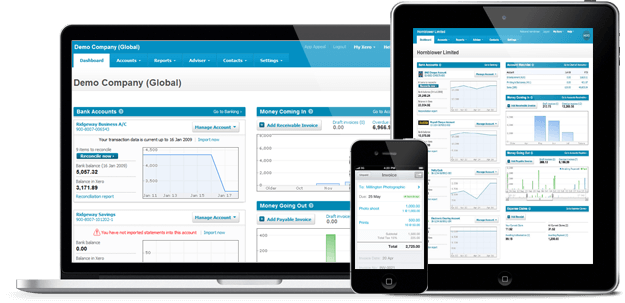How to Recession Proof Your Business
Business owners are facing unprecedented challenges with uncertainty surrounding the COVID 19 (coronavirus) outbreak. The pandemic will
eventually pass but the big question is, when and what can you do to minimise the damage?
Certain industries are being hit hard, particularly those involved in international travel, tourism, conferences and events, restaurants, cafes and of course, healthcare. The ripple effect has already hit hundreds of thousands of casual workers. Supply chains have been disrupted and we are witnessing panic buying of basic food and cleaning items plus toilet paper. The Government are expecting we will go into economic recession (negative growth) for the first time since 1991 so most business owners are about to sail into unchartered waters.
While some people have hit the panic button it’s important that business owners stay calm and start planning. It’s time to work ON your business as opposed to working IN the business. Most importantly, as your accountants, we are here to help you navigate your way through what might be a perfect storm.
American business magnate, Warren Buffett once gave a famous warning: "It's only when the tide goes out that you learn who's been swimming naked." When times get tough you find out who has been flying by the seat of their pants. When the economy is booming the weaknesses in a business can be concealed but when the tide turns, both the strengths and weaknesses surface. This pandemic has hit with no real warning and the cause of this economic shutdown is very different to anything we’ve seen in our lifetime. Nobody was prepared or knows what lies ahead.
Federal Government’s Stimulus Package
Clearly, there’s no silver bullet or quick fix and every business is different. Very few industries are recession proof (except toilet paper manufacturers) and the most important thing right now is, be pro-active. For example, there are a number of financial incentives in the Federal Government’s Stimulus Package that you may be eligible for. Contact us today to discuss what you might be eligible to receive.
Having said that, the Stimulus Package does not provide a miracle cash flow cure because the government incentives are designed to stimulate the economy through spending. They rely on business owners having the funds to spend upfront. For example, increasing the threshold and broadening the eligibility criteria for the instant asset write-off concession is helpful but it won’t save any business. This incentive encourages spending but depending on your cash position, it might not be the right time to invest. You might need that cash to survive, pay staff, suppliers and service your debts. Depending on the duration of this once-in-a-100-years pandemic, we could see large and small businesses collapse with significant unemployment to follow. The last recession-like economy in Australia wiped out almost 75,000 businesses.
Understand the terms and conditions of the incentives on offer and think through the implications on your cash flow. Stay calm and project the impact this pandemic might have on your revenue and sales. Develop a contingency plan around potentially not generating revenue for 4, 6 or 8 weeks. A cash flow budget could be invaluable even though revenue projections might be guess work. Do some financial modelling including projections based on your likely sales and then prepare another forecast based on your worst case scenario. Remember, when the pandemic passes, your sales probably won’t rebound immediately to the levels you were generating pre COVID 19. The economy is like a massive machine with lots of moving parts and to re-fire it takes time.
It’s important that you get your house in order starting with your bookkeeping and financial records. Monitor your debtors and creditors. Generally speaking, bad maths or bad marketing can send you broke at any time. Obviously, having up to date records won’t save you if you have no customers. On the flip side, great accounting records won’t help you if your marketing isn’t working.
Clearly, every business and industry face different challenges. At the start of this pandemic, suppliers of basic necessities including the manufacturers of toilet paper and cleaning products plus food with long shelf lives had to ramp up production to satisfy the demand. They will need to consider how they will manage the inevitable drop in demand given consumers have stockpiled their products. How will they manage their staff when they cut production levels? Some entrepreneurs might say this is a nice problem to have in the current environment.
 For
struggling retailers, the challenge is how to create demand and keep the doors open to pay the rent and
fixed costs? Could you shift your business and marketing online? This might require a review and makeover of your website to build a list
of products and a shopping cart feature. Do you have an up to date customer database you can send special offers to?
For
struggling retailers, the challenge is how to create demand and keep the doors open to pay the rent and
fixed costs? Could you shift your business and marketing online? This might require a review and makeover of your website to build a list
of products and a shopping cart feature. Do you have an up to date customer database you can send special offers to?
For a restaurant, how can you create demand when people aren’t going out and there are restrictions on non-essential indoor gatherings of more than 100 people? They say, necessity is the mother of invention so could your restaurant produce take home fresh meals in sealed packaging and offer home delivery? Could you launch a range of frozen meals including an ‘isolation pack’ that would get people through a 14-day period of coronavirus-induced isolation? Is there a way you could keep your staff employed so you don’t lose them to a competitor when things recover?
Speaking of staff, be transparent and communicate with them. Take all the precautions you can to protect your employees and customers from the risk of infection. Businesses should put the appropriate protocols in place and follow the guidelines issued by the Health Department regarding hygiene, social distancing and travel. Professional service firms, IT businesses and the like should be able to get the staff to work remotely from home.
We appreciate this is a stressful, complex and difficult time for clients. Small business is our passion and we have put together an e-Book that details 10 strategies designed to help recession proof your business. The list is not exhaustive but hopefully it serves as a starting point. Click below to download a copy and start by prioritising the strategies.
Please contact us if you need any help with implementation.















